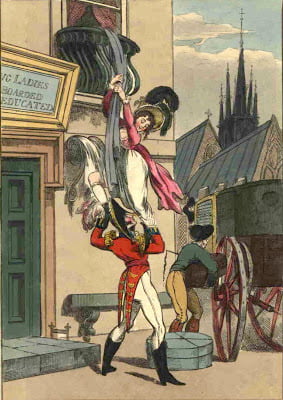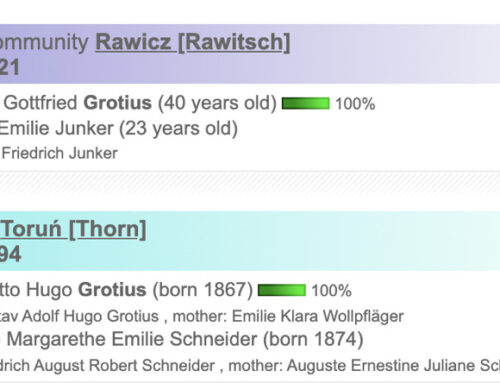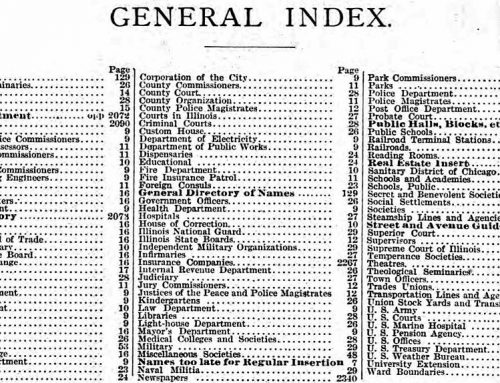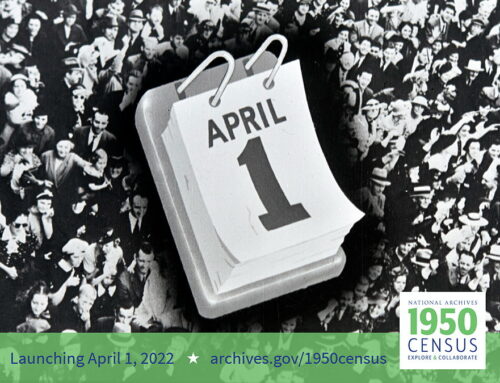Today’s post is about Gretna Green and marriage records. Stay tuned for a new post Thursday about finding elusive marriage records by locating the Gretna Green your ancestors may have used in the United States.
Gretna Green is used today as shorthand for any place where eloping couples could be swiftly married. Its origins lie in the English Marriage Act of 1753, which was designed to prevent upper-class men and women from “marrying down.” To circumvent this law, a couple could either obtain a special license from the Archbishop of Canterbury, or elope to Gretna Green in Scotland.
Gretna Green was a village just over the Scots-English border, and conveniently located on the main route from London into Scotland. Rather than petition the Archbishop of Canterbury, couples chose the easier path and fled north to Gretna Green, where “marriage by declaration” (aka handfasting) required only two witnesses and assertions that the marrying couple were both over the age of 16 and free to marry. 
The ceremonies were usually performed by one of the village blacksmiths, who were held in sufficient regard by the community. Even today, many Anglican ministers refer in to their marriage ceremonies to joining two people as one, just as a blacksmith joins two metals over the anvil. In common law, a “Gretna Green marriage” means a marriage transacted in a jurisdiction that was not the residence of the parties being married, to avoid restrictions or procedures imposed by the parties’ home jurisdiction. FamilySearch says:
A Gretna Green is a favored marriage place. When a couple runs away from their home area to get married in a place with fewer marriage restrictions, the place they go is often called a “Gretna Green.” They may want to marry at a younger age, want to wait a shorter period after obtaining a license, want to marry without parental consent, want to avoid procedures such as blood tests, want less paperwork, want to avoid paying a marriage bond, want to keep the marriage a secret, want a less expensive marriage, or want to marry a closer cousin than their home district will allow. Or there may be a special romantic place to elope. Some couples wanted to wed in the same place their friends got married. When enough couples resort to a particular place it may gain a reputation as a Gretna Green.
If (like my family) your ancestors didn’t spring straight from the pages of a Jane Austen novel, search strategies for finding their Gretna Green and marriage records are even more important. In the United States, these locations are also referred to (far less romantically) as marriage mills. Stay tuned for search strategies for missing marriage records.






What a fun new find you are for me Sassy Jane!
Thanks! Stay tuned for more.